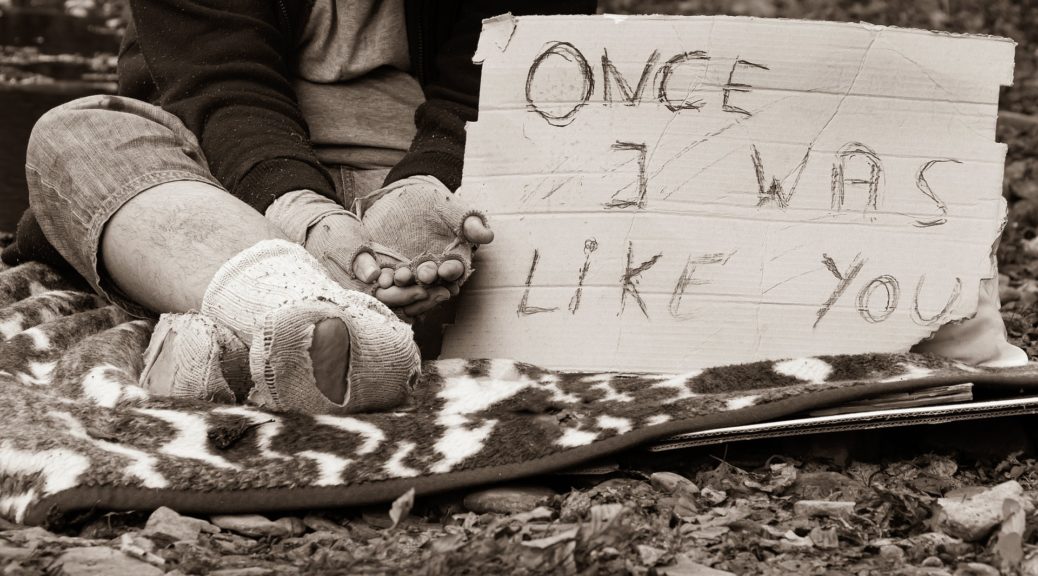I first realized I was the enemy of society when I was a homeless child sleeping on the roofs of steaming laundromats and eating the abundant variety of food thrown in business dumpsters. It was before grocery stores defeated the homeless by installing trash compactors we couldn’t access.
I was homeless by choice. I’d been offered the hospitality of 30-40 foster homes which I impolitely declined, running loose until the courts gave up and legally emancipated me at age 16. It’s possible one of those foster homes I escaped from would’ve provided me with security, nurtured me, possibly even loved me, but I refused to gamble. I despised authority, saw it as a disease that transmutated ordinary people into monsters. Four decades later, rotting in a former slave state prison for a crime I did not commit, my opinion about authority hasn’t improved much.
Before I reached age 14, I had been assaulted three times by police officers, once so severely it took more than a week in the hospital to recover. They hurt me not because of criminal acts, but ostensibly because I lacked respect. Yet the truth is, my irreverence didn’t provoke them nearly as much as my disparity. I belonged to a different tribe, and I was a powerless divergent unable to retaliate. The establishment has always victimized people without status or property; they were the proverbial ‘us’, and I was ‘them’ – enemies from the dawn of mankind.
When I grew up, I almost joined their number, not as a cop but as a patriot. I never did get good at following rules though, and it wasn’t long before my military career ended. Once again I was delegated to one of ‘them’, a disenfranchised human of no money or status, who lacked the hive worker skills necessary to acquire any.
I was a drifter, drove a clunker, and had long hair; each a crime in itself. Like diverse strangers everywhere – racial minorities, homosexuals, the homeless – I became a target for police. In a southern town where disparity was the ultimate sin, I was jailed.
Attorney General, Janet Reno said, “Justice is available only to those who can afford lawyers.” How right she was. I would’ve fared so much better if I had been wealthy and guilty rather than poor and innocent. Or I could’ve at least saved my life if I had capitulated to the politically ambitious prosecutor and accepted his five year easy conviction plea deal. Instead I demanded a trial by my ‘peers’, and they sentenced me to die in a plantation penitentiary.
If I thought poverty and diversity made me less than human, I soon discovered there is absolutely nothing lower than a prisoner. Even lab monkeys have more enforceable rights to humane treatment than prisoners. We have less prestige than all the unarmed black men, homosexuals and homeless put together.
Just a few months before George Floyd was murdered and set off international protests, prison guards went into the cage above mine and beat a naked old man named Frank Digges to death. There were, of course, no protests. I’m betting you’ve never heard of him even though his murder and a gruesome photo of spinal fluid leaking down his face was published in a major newspaper, The Houston Chronicle.
Why haven’t you heard of Frank Digges and all the other prisoners tortured and murdered? Because society at large doesn’t care, and the media knows it – and the perpetrators know it. We’re the ultimate ‘them’, viewed much like the native Americans with valuable land, the plantation slaves, and the marginalized that society doesn’t even acknowledge as human.
Given human nature, it seems impossible concepts like social justice or its sibling, criminal justice, will ever truly exist. Our tribal instinct is so strong that even small children cruelly attack a child who is different. History is full of powerful groups committing atrocities against weaker groups. One could argue that’s all history is. Family, race, religion, nationality… we all belong to a tribe, and we’re all guilty of injustice to some degree, but the greater tragedy is how easily we rationalize our evil.
I will likely die in a cage for the crime of being ‘them’, but I still think social empathy and justice are possible. It won’t be accomplished by appealing to groups because groups naturally set themselves above and apart from outsiders. But as individuals, I think we’re all capable of walking in other people’s shoes, inspired by someone’s story. Stories allow us to see strangers as humans. So I write, not just to have my story heard, but the stories and voices of thousand of prisoners, many of whom are functionally illiterate and have no voice of their own.
ABOUT THE WRITER. I love this piece. John Adams put into words our purpose in such an eloquent way, although it was not his intention. His writing is always honest, open and a true pleasure to work with and share. He is not only an amazing writer, he keeps me on my toes, always making me review the way I present topics. John Adams has served twenty-five years of a life sentence and maintains his innocence. He can be contacted at:
John Adams #768543
810 FM 2821
Huntsville, TX 77349
![]()
